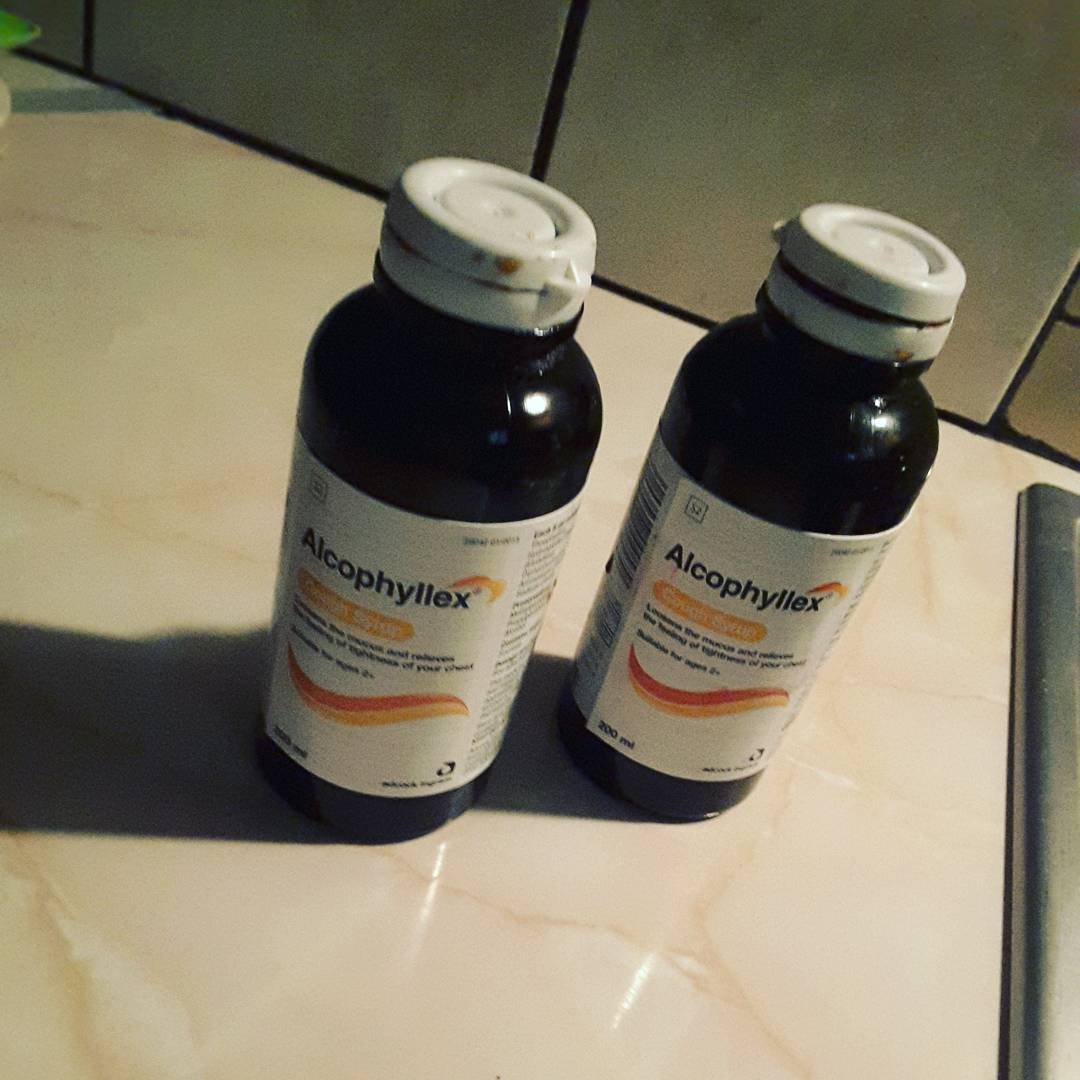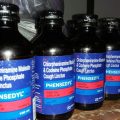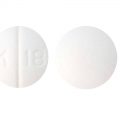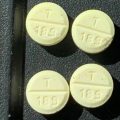Alcophyllex syrup is a combination medication used to treat respiratory conditions such as asthma, bronchitis, and chronic obstructive pulmonary disease (COPD). It contains two active ingredients: theophylline and ephedrine.
Theophylline is a bronchodilator that relaxes the muscles in the airways, making it easier to breathe. It also improves respiratory function by reducing inflammation and increasing the sensitivity of respiratory muscles to nerve signals. It has been used for the treatment of respiratory disorders for more than 80 years.
Ephedrine is a sympathomimetic agent that acts as a decongestant by narrowing blood vessels in the nasal passages. This action helps to reduce swelling and inflammation in the airways and improves breathing.
Alcophyllex syrup is available in different strengths and dosages depending on the severity of the respiratory condition. It is usually taken orally with or without food, as directed by a healthcare professional.
Dosage
The dosage of Alcophyllex syrup varies depending on the age and condition of the patient. Here are the recommended dosages:
For Adults: The recommended dose of Alcophyllex syrup for adults is 10 ml (2 teaspoons) three times daily. However, the dosage may be adjusted by your doctor based on your condition.
For Children: The dosage of Alcophyllex syrup for children depends on the age and weight of the child. The following is a general guideline:
- Children under 2 years of age: Alcophyllex syrup is not recommended for children under the age of 2.
- Children between 2 and 6 years of age: The recommended dose is 2.5 ml (1/2 teaspoon) two or three times daily.
- Children between 6 and 12 years of age: The recommended dose is 5 ml (1 teaspoon) two or three times daily.
- Children over 12 years of age: The recommended dose is the same as the adult dose, which is 10 ml (2 teaspoons) three times daily.
It is important to follow the dosage instructions provided by your doctor or pharmacist. Do not exceed the recommended dose, as this can increase the risk of side effects. If you miss a dose, take it as soon as you remember. However, if it is close to the time for your next dose, skip the missed dose and take the next dose at the regular time.
Overdosing on Alcophyllex syrup can cause serious side effects such as seizures, rapid heartbeat, and breathing difficulties. If you miss a dose, take it as soon as you remember, but do not double up on doses to make up for a missed one.
Is Alcophyllex Good For Babies?
No, Alcophyllex syrup is not recommended for use in babies or infants without a doctor’s prescription and supervision. The medication contains two active ingredients, theophylline, and diphenhydramine, which can cause serious side effects in young children. Theophylline can cause seizures, irritability, and abnormal heart rhythms in infants, while diphenhydramine can cause sedation, respiratory depression, and decreased muscle tone.
If your baby or infant is experiencing respiratory symptoms, such as coughing, wheezing, or difficulty breathing, it is important to seek medical attention from a healthcare professional. Your doctor may recommend alternative medications or treatments that are safer and more appropriate for your child’s age and condition. It is not recommended to give any medications to infants or young children without a doctor’s recommendation and prescription.
Side Effects
Like all medications, Alcophyllex syrup may cause side effects. Some of the common side effects of Alcophyllex syrup include:
- Nausea and vomiting
- Headache
- Dizziness
- Insomnia
- Tremors
- Restlessness
- Palpitations
- Increased heart rate
- Flushing
- Sweating
- Diarrhea
- Stomach pain
- Loss of appetite
- Rash
Some of the less common but more serious side effects of Alcophyllex syrup include:
- Seizures
- Chest pain
- Irregular heartbeat
- Confusion
- Difficulty breathing
- Hallucinations
- Severe allergic reactions (rare)
If you experience any of the serious side effects listed above, seek medical attention immediately. Additionally, be sure to tell your doctor about any other medications you are taking, as they may interact with Alcophyllex syrup and increase the risk of side effects.
Interactions
Alcophyllex syrup can interact with certain medications, supplements, and foods, which can increase the risk of side effects or reduce the effectiveness of the medication. Here are some of the interactions to be aware of:
- Other medications that can interact with Alcophyllex syrup include antibiotics, antifungal medications, seizure medications, blood thinners, and certain antidepressants. Be sure to inform your doctor about all medications you are taking before starting Alcophyllex syrup.
- Consuming large amounts of caffeine (such as coffee, tea, or energy drinks) while taking Alcophyllex syrup can increase the risk of side effects such as tremors, restlessness, and palpitations.
- Alcohol can also increase the risk of side effects such as dizziness and drowsiness, so it is recommended to avoid alcohol while taking Alcophyllex syrup.
- Certain foods can interact with Alcophyllex syrup, such as grapefruit and grapefruit juice, which can increase the amount of the medication in your body and increase the risk of side effects.
- Supplements such as St. John’s Wort, ginseng, and echinacea can also interact with Alcophyllex syrup, so be sure to inform your doctor if you are taking any supplements.
- Smoking cigarettes or marijuana can also interact with Alcophyllex syrup and decrease its effectiveness, so it is recommended to avoid smoking while taking the medication.
It is important to inform your doctor about all medications, supplements, and foods you are taking before starting Alcophyllex syrup to avoid any potential interactions. If you have any questions or concerns, talk to your doctor or pharmacist.
Precaution
Before taking Alcophyllex syrup, it is important to take certain precautions to ensure that the medication is safe and effective for you. Here are some precautions to keep in mind:
- Tell your doctor if you have any allergies, especially to theophylline, diphenhydramine, or any other medications.
- Inform your doctor about any medical conditions you have, especially heart disease, high blood pressure, seizures, liver disease, kidney disease, or stomach ulcers.
- Let your doctor know if you are pregnant or breastfeeding, as Alcophyllex syrup may not be safe for use during these times.
- Do not take Alcophyllex syrup if you are taking other medications that can interact with it, such as certain antibiotics, antifungal medications, or seizure medications.
- Avoid consuming large amounts of caffeine while taking Alcophyllex syrup, as this can increase the risk of side effects.
- Take Alcophyllex syrup exactly as prescribed by your doctor. Do not take more or less than the recommended dose, and do not stop taking the medication without first consulting your doctor.
- Store Alcophyllex syrup in a cool, dry place away from heat and moisture. Keep it out of reach of children.
By following these precautions, you can reduce your risk of experiencing side effects or other complications while taking Alcophyllex syrup. If you have any questions or concerns about the medication, talk to your doctor or pharmacist.






